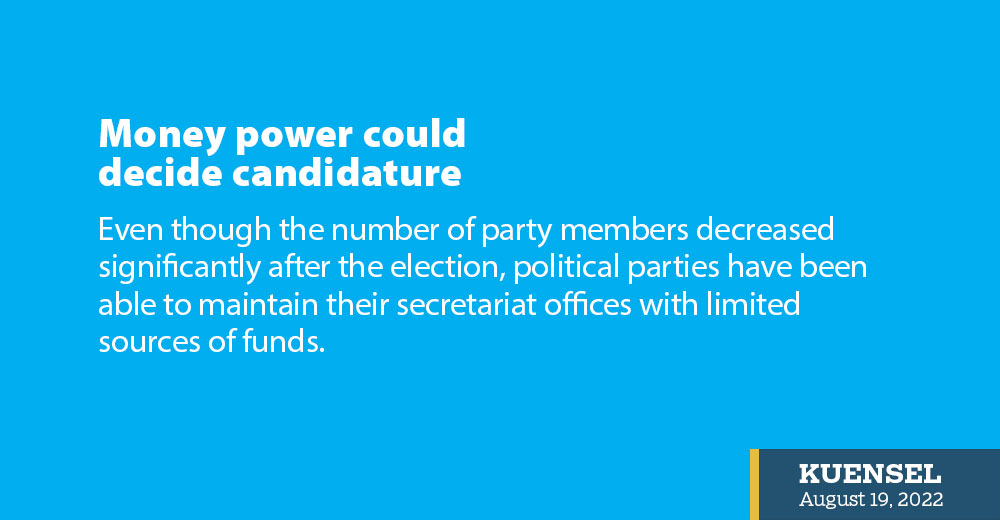MB Subba
Even though the number of party members decreased significantly after the election, political parties have been able to maintain their secretariat offices with limited sources of funds.
However, the political parties’ expenditures are expected to shoot up as they prepare for the fourth National Assembly elections, which will begin towards the end of 2023.
To meet the expenses and to strengthen their support base, parties are expected to recruit new members.
More importantly, party officials said that voluntary contributions from candidates and party supporters would be the main sources of funding for political parties besides the state finding.
However, some sources said that need for candidates to make voluntary contributions to the party would give an advantage for rich aspirants in terms of getting party tickets.
“It is natural for political parties to consider how a candidate can strengthen the party financially,” one of the sources said, adding that contributions from members were insignificant.
However, the general secretary of Druk Nyamrup Tshogpa (DNT), Phurba, said that it was not compulsory for all the candidates to contribute to the party and that it was based on affordability.
He said that the party office was comfortable financially as each of its MPs contributes 10 percent of his or her salary to the party. “A member can contribute up to Nu 500,000 to the party annually,” he added.
Parties outside of Parliament have also maintained their offices despite not having MPs.
The secretary general of People’s Democratic Party (PDP), Kuenga Tashi, said that the party has been receiving voluntary contributions regularly from senior members, including former ministers.
He said that members were also contributing to the party’s fund although the amounts were not significant. He said the party has about 900 members compared to about 5,000 in 2018.
A party official said that given the small numbers of membership, registration and renewal fees collected from members are not enough to sustain a party’s office.
The DNT has about 256 registered members, according to the party secretariat. It had more than 11,000 members in 2018.
The past trends show that most of the members resign soon after the election. A registered member must complete a one-year cooling-off period to take part in activities like contesting a local government election.
The Druk Phuensum Tshogpa (DPT), however, claimed that it has more than 4,000 members.
Bhutan Kuen-Nyam Party had 1,200 members in 2018. The party could not be contacted for the latest information on its membership.


